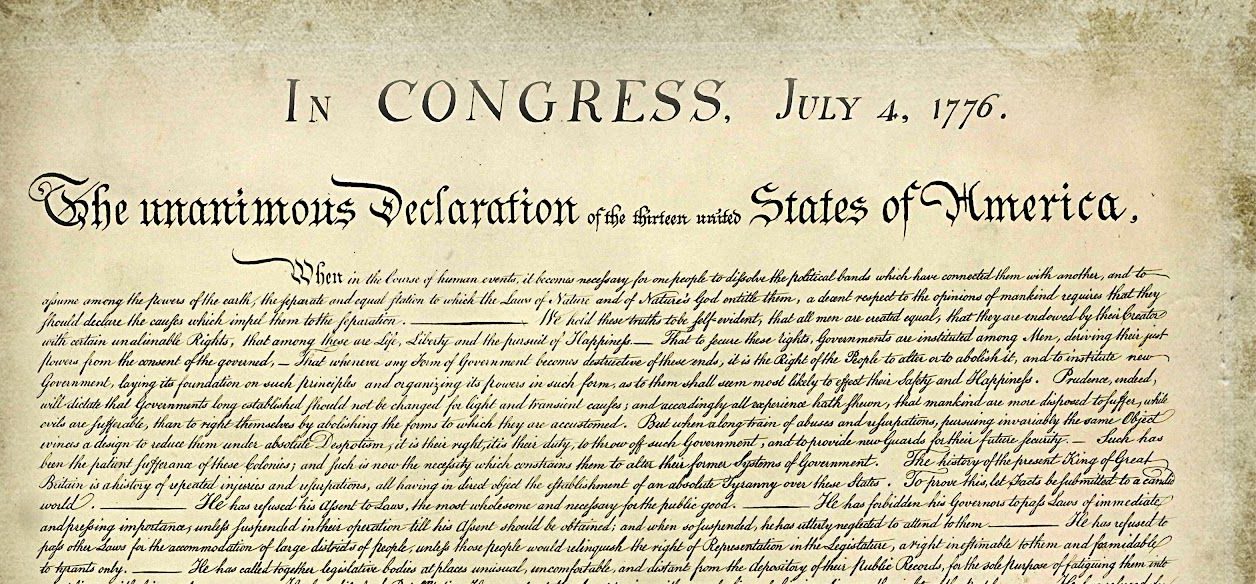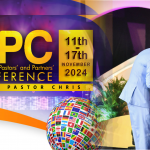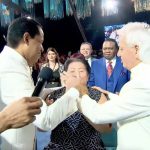
Welcome to another week of the Transformation Leadership Series (TLS). The world is currently defined by segments of social research into developed and developing world. It a known secret that much of the developing world, especially Africa, hosts the majority of the world’s resources and yet much of its countries find themselves consistently at the lowest levels of the UNDP’s Human Development Index (HDI). The paradox is ‘want and dire poverty in the midst of plenty’. What accounts for this? The simple answer is a having critical mass of leadership which possess a certain quantum of Christo-centric values and ethics as discussed in the two previous segments of the TLS.
The saying, ‘Leadership is Cause. All other is effect’ is true to the extent that such leadership is guided by godly principles such as integrity, honesty, faithfulness, honour etc. This is how nations have developed. The dearth of this is what has also led to the demise of whole nations and continents. Values are timeless guiding principles that influence behaviour and do not change irrespective of whether circumstances are favourable or not. They are the steering wheel of life.
Governance and Government are both systems. Democracy is a system and so is the free market economy. To enjoy the optimum benefit of systems, they must be deployed under certain conditions—especially when it is a transferal from one system to another. What is a system and how does it work? Before answering this, let me preface the answer with the following statement. As noted in previous TLS installments, social scientists in China have concluded that, “The Christian moral foundation of social and cultural life was what made possible the emergence of capitalism and then the successful transition to democratic politics. We don’t have any doubt about this…”.
SYSTEMS THINKING
We all work within and between a variety of systems: structural systems (a road network), functional systems (academic department), social system (work group), information system (a class or course). A system is a set of objects or elements that interact to achieve a specific goal. A system is more than the sum of its parts; it’s properties emerge from the relationship among its parts and from the system’s relationship to its environment. Systems are arranged hierarchically, so every system is a super system for systems contained within it and a subsystem for systems containing it. Systems are made up of sub-systems that depended on each other.
GOVERNANCE AND MORALITY
Now if democracy is a system, what are some of its interacting parts or components that interrelate with each other? Parts of components of a democratic system include election systems, executive, parliamentary and judicial systems, law enforcement systems, systems that ensure rights and participation of citizens in government etc. But what is the common denominator in all the above? The answer is human beings and their value system. Without a certain ethos or value system, an attempt to make a transition to democracy will lead to a premature transition which will hamstring development. The U.S. system of democracy looks different from that in Africa simply because theirs was not forced on them. It was a natural part of their evolutionary process as a country once they had achieved a certain level of Christian moral foundation. African countries on the other hand had it forced on them by the hegemon and its allies. Overnight they had to jettison what was indigenous to them and run an alien system without the prerequisite components in place, the most important being a Christian moral foundation—not religion as in empty external acts of piety. I am referring to the independence movement eras of the 50s, 60s and 70s. Africa was religious then as it is now. Even today many of its population throng to churches, mosques and traditional leaders but Christianity as taught by the master is not the guiding principle that dictates behavior in many of its countries. This is a challenge. The result is that the strain of democracy within the continent of Africa is not what is practiced in the West (who are living on the afterglow of a receding moral foundation of their forefathers) but rather a paternalistic one with characteristics such as winner-takes-all, corrupt leaders who do not put their God and Country first, poor citizen education and participation etc. Do not misunderstand there are many bright spots on the continent with proactive transformation-oriented leadership who are moving their countries in the right direction such as Rwanda, Ethiopia and Tanzania. Hopefully their success will influence other nations positively.
Governance is a system and democracy is one system of governance, which to be successful at, must be founded on God, the rights and obligations He gives to man, as well as His value system. This is the backbone of the U.S. Declaration of Independence and the U.S. Constitution. What is the proof? Listen to the following statements of U.S. Presidents in U.S. history:
Of all the dispositions and habits which lead to political prosperity, religion and morality are indispensable supports. Observe good faith and justice towards all nations; cultivate peace and harmony with all. Religion and morality enjoin this conduct; and can it be, that good policy does not equally enjoin it – It will be worthy of a free, enlightened, and at no distant period, a great nation, to give to mankind the magnanimous and too novel example of a people always guided by an exalted justice and benevolence—George Washington’s Farewell 1796 Address
Washington had previously said in his 1789 inaugural address that:
…the foundations of our National policy will be laid in the pure and immutable principles of private morality…
George Washington was succeeded as first president of the USA by his vice president John Adams, the man who earlier in 1775 had nominated George Washington to be commander-in-chief. Adams played a leading role in persuading Congress to declare independence and assisted Thomas Jefferson in drafting the Declaration of Independence in 1776 being its primary advocate in the Congress.
In a separate letter to Zabdiel Adams dated June 21, 1776, John Adams states:
It is religion and morality alone which can establish the principles upon which freedom can securely stand.
Adams added in 1811:
Religion and virtue are the only foundations…of republicanism and all free governments.
He wrote in a letter addressing the First Brigade of the Third Division of the Militia, October 11, 1798
We have no government armed with power capable of contending with human passions unbridled by morality and religion. Avarice, ambition, revenge, or gallantry, would break the strongest cords of our Constitution as a whale goes through a net. Our Constitution was made only for a moral and religious people. It is wholly inadequate to the government of any other.
It would seem the wisdom of these U.S. patriarchs agree with the notion that democracy can only flourish on a Christian moral foundation.
Now let us consider constitutions and other legal texts. Generally, many national constitutions refer to and invoke God—acknowledging the role of deity and the supernatural as a major component of a governance system. A reference to God in a legal text is called invocatio dei (“invocation of God”) if the text itself is proclaimed in the name of the deity. If religion and morality were not important, why have legal scholars placed God at the fulcrum of basic legal texts (constitutions) from which emanate all other laws of the land?
The U.S. Declaration of Independence invokes the presence of the Divine and its supernatural protection and assistance:
When in the Course of human events, it becomes necessary for one people to dissolve the political bands which have connected them with another, and to assume among the powers of the earth, the separate and equal station to which the Laws of Nature and of Nature’s God entitle them, a decent respect to the opinions of mankind requires that they should declare the causes which impel them to the separation.
We hold these truths to be self-evident, that all men are created equal, that they are endowed by their Creator with certain unalienable Rights, that among these are Life, Liberty and the pursuit of Happiness.
We, therefore, the Representatives of the United States of America, in General Congress Assembled, appealing to the Supreme Judge of the world for the rectitude of our intentions, do, in the Name, and by the Authority of the good People of these Colonies, solemnly publish and declare, That these United Colonies are, and of Right ought to be Free and Independent States;
And for the support of this Declaration, with a firm reliance on the protection of divine Providence, we mutually pledge to each other our Lives, our Fortunes, and our sacred Honor.
The following is from the Pew Research Centre:
The U.S. Constitution never explicitly mentions God or the divine, but the same cannot be said of the nation’s state constitutions. In fact, God or the divine is mentioned at least once in each of the 50 state constitutions and nearly 200 times overall, according to a Pew Research Center analysis.
All but four state constitutions – those in Colorado, Iowa, Hawaii and Washington – use the word “God” at least once. The constitutions in Colorado, Iowa and Washington refer to a “Supreme Being” or “Supreme Ruler of the Universe,” while Hawaii’s constitution makes reference to the divine only in its preamble, which states that the people of Hawaii are “grateful for Divine Guidance.”
Most state constitutions – 34 – refer to God more than once. Of the 116 times the word appears in state constitutions, eight are in the Massachusetts constitution, and New Hampshire and Vermont have six references each. Perhaps surprisingly, all three of these states are among the least religious in the country, according to a 2016 Pew Research Center analysis.
In addition to the 116 mentions of God, there are also 14 mentions of a Supreme or Sovereign Being, seven mentions of the “Creator,” three mentions of “providence,” four mentions of “divine” and 46 instances of the word “almighty.” While there are 32 mentions of the word “Lord,” all but one refer to “the year of our Lord” and so are not direct references to God. (Indeed, the U.S. Constitution also makes reference to “the year of our Lord.”) There also are seven mentions of the word “Christian.”
Is it any coincidence that all the states recognize God or a supreme being? I think not. How about other Western Constitutions?
In the Name of the Most Holy Trinity, from Whom is all authority and to Whom, as our final end, all actions both of men and States must be referred, We, the people of Éire,
Humbly acknowledging all our obligations to our Divine Lord, Jesus Christ, Who sustained our fathers through centuries of trial, … Do hereby adopt, enact, and give to ourselves this Constitution.
Article 6 of the Irish Constitution states:
All powers of government, legislative, executive and judicial, derive, under God, from the people, whose right it is to designate the rulers of the State and, in final appeal, to decide all questions of national policy, according to the requirements of the common good.
Commonwealth of Australia Constitution Act states:
WHEREAS the people of New South Wales, Victoria, South Australia, Queensland, and Tasmania, humbly relying on the blessing of Almighty God, have agreed to unite in one indissoluble Federal Commonwealth under the Crown of the United Kingdom of Great Britain and Ireland, and under the Constitution hereby established:
The list goes on and on. For more click References to God in national constitutions.
In summary, like President Adams stated, no government can contend with human passions and their fallen nature if bereft of morality and religion. In the absence of Christian values, ethics, and morality, the surely avarice, ambition, revenge, or gallantry, would break the strongest cords of democratic constitution as a whale goes through a net. America’s Constitution which is the basis of many democratic systems the world over was made only for a moral and religious people. This is what China realized and what Maximillian Weber and other eminent social scientists have written about for decades.







